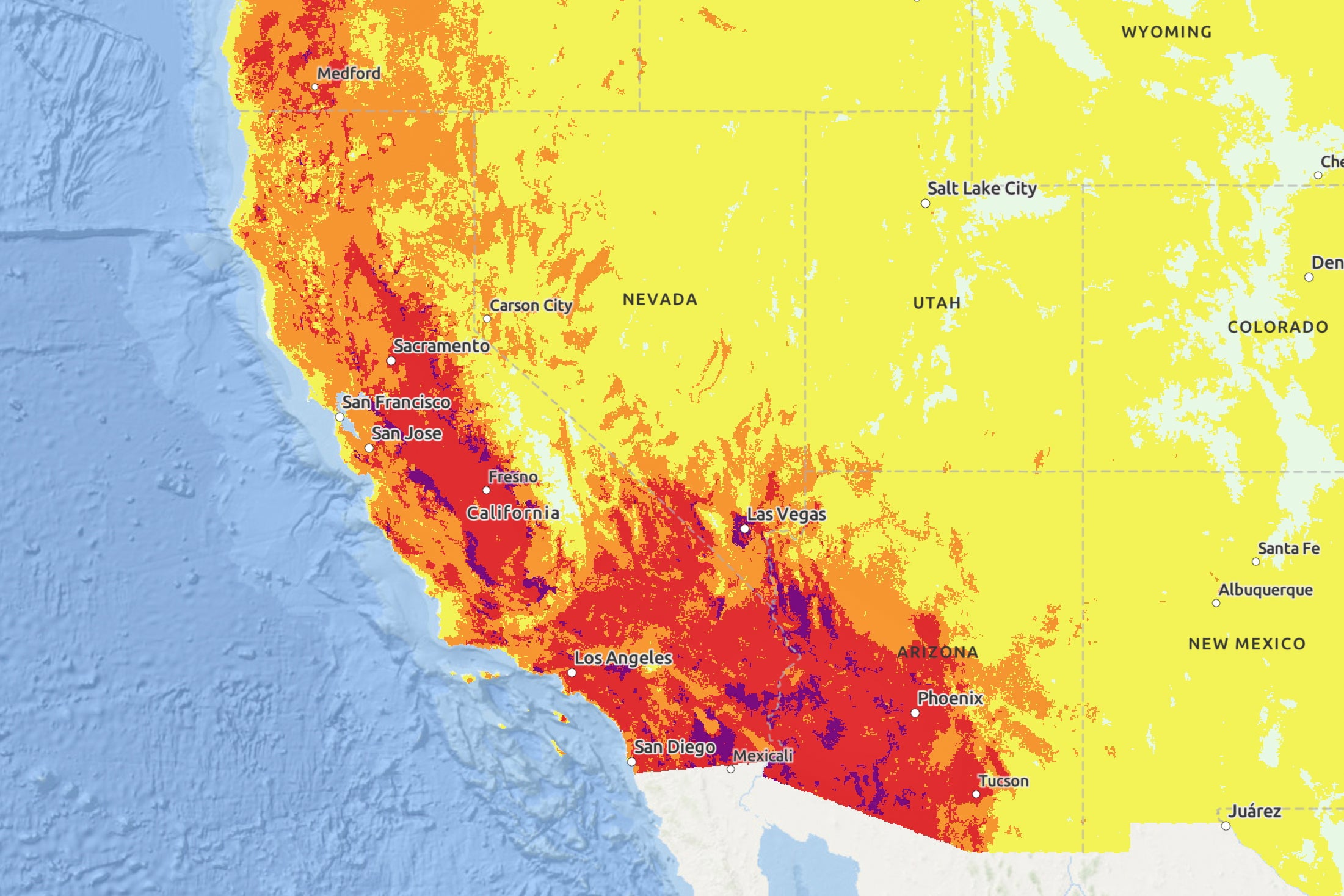Brutal Heat Wave Will Extend Streak of 100 Days of 100 Degrees F (Sci Am) [View all]
Summer has been brutally hot in the Southwest, toppling records set just last year, and the heat isn’t over yet
https://www.scientificamerican.com/article/brutal-southwest-heat-wave-will-extend-streak-of-100-days-of-100-degrees-f/
Paying my electric bill today. YIKES.

The NWS HeatRisk map for the Western United States on September 5, 2024. NOAA/OpenStreetMap (CC BY-SA 2.0)
The record-breaking heat of both summers has come from a series of heat waves where masses of hot air that park over an area for days. “We’ve basically had that for the overwhelming majority of the summer,” Woods says. The clear skies that accompany these features mean “land surfaces heat up day after day,” which in turn heats up the air just above the surface, Salerno says. Such heat waves are happening more frequently, lasting longer and becoming more intense because of the excess heat trapped by greenhouse gases that have been generated by burning fossil fuels.
This week’s heat wave won’t be as intense as the one that suffocated the region in July, and it won’t last as long, “but it’s definitely unusual for this time of year,” Woods says. It is extending the amount of time residents are being subjected to conditions that bring a serious risk of illness. “Just because the temperatures aren’t what we saw in July doesn’t meant they aren’t dangerous,” Woods says. In the U.S., extreme heat is deadlier than hurricanes, floods and tornadoes combined.
Those at particular risk of heat exhaustion, heat stroke and other heat-related health problems include very young children, older people, those who have certain existing health conditions or are on particular medications, people who work outside and unhoused individuals. Both Woods and Salerno emphasize the need for all people in any heat wave to stay hydrated, avoid going outside during the peak heat of the day, and seek out shade or air-conditioning when at all possible. Both scientists also warn that people should never leave a child or pet unattended in a car; so far this year, 27 children have died of heat stroke after being left in a vehicle.
“Essentially all heat-related deaths are preventable,” says Kristie Ebi, an epidemiologist who specializes in heat-related health risks. Many cities, including Phoenix, are looking for ways to better warn residents and to reduce deaths and hospitalizations from heat-related illness. The NWS has also been working on better warning practices, including a new experimental tool called HeatRisk that shows locations where heat will be extreme enough to represent a serious health concern.
